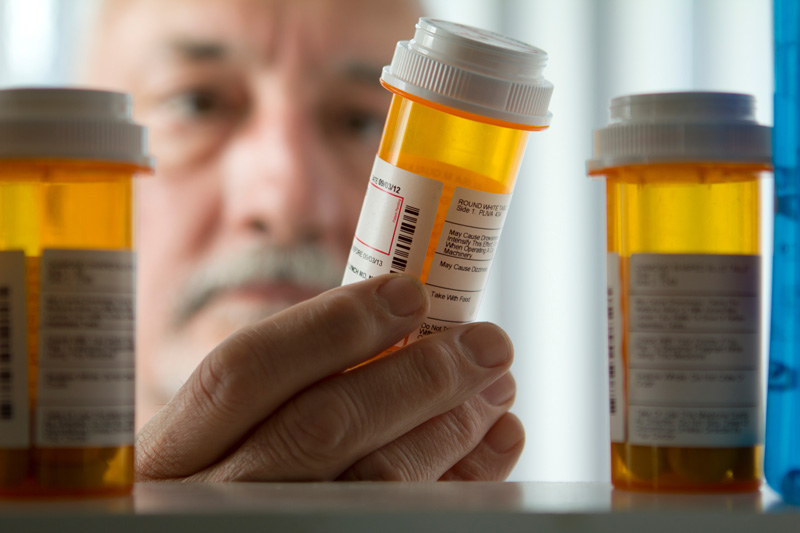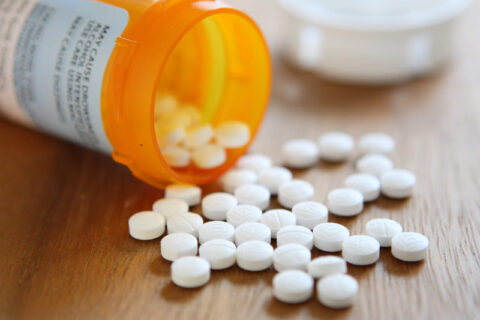Don’t Be Tempted to Use Expired Prescriptions
Unlike fine wines that age better with time, prescriptions that sit around medicine cabinets unused month after month, not only lose their effectiveness and potency, but in some cases can pose serious health problems if taken beyond their expiration date. Here’s a primer on how old, is too old.
In 1979, the U.S. Food and Drug Administration (FDA) began requiring an expiration date on prescription and over-the-counter medications. Those expiration dates play a role in determining whether medicine is safe and will work as it is intended to.
Taking medications beyond their expiration date can be a risky proposition. Age brings about chemical changes in the composition of many medicines. Certain expired medications are at risk of bacterial growth and in some cases, antibiotics can lose their potency and ability to fight off infections as they are intended to do. Failing to treat infections can lead to more serious consequences and contribute to a person developing antibiotic resistance.
Simply stated, if the expiration date on your medicine has come and gone, don’t use it.
Not only should patients toss out expired medications, they also should do so very carefully with pet, family and environmental safety in mind.
The FDA provides a picture chart of the four-step process to safely rid your home of expired medications entitled “Mix-Place-Throw-Scratch” at Disposal of Unused Medicines. Some expired medicines can be safety disposed of in household trash or kitty litter if sealed, others should be flushed down the toilet or sink, and some should be taken to community agencies during events like National Prescription Drug Take-Back Days.
Patients who store prescriptions and over-the-counter medications should also read labels carefully to note not only the expiration dates, but also proper storage methods. Some medicines are moisture and heat sensitive, while others require refrigeration. Keeping yours in a bathroom that is used for hot showers and baths may negatively impact the condition and shelf life of medications.
Improper storage or disposal could lead to the medicines falling into the hands or paws of unsupervised children and pets. Accidental exposure or ingestion could lead to medicine poisoning and in some cases, even death.
Kristie Coots, Registered Pharmacist and Pharmacy Manager with Brevard Health Alliance, says when it comes to proper drug storage and disposal, an ounce of prevention is indeed, worth a pound of cure.
“The most common mistakes that patients make with expired medications are that they don’t realize that once they pass the expiration date, the medications lose their potency, decrease in effectiveness, and they think they can flush the medications down the toilet.
“Once a medication passes its expiration date, it starts to break down and change in composition. This can lead to the medication becoming less effective or in a few rare cases, it can turn harmful if ingested. Proper disposal of old medications is important because we don’t want medications to fall into the wrong hands by just throwing it in the garbage.
“The proper way to dispose of any medication is to black out any patient information on the medication label and take it to a local police station or a Walgreens and place the expired medication in the ‘Medication Disposal Bins.’”
As for taking medications or over-the-counter drugs beyond their expiration date, Coates advises again to err on the side of caution.
“My recommendation is to adhere to the printed expiration date because the efficacy of the drugs can be reduced once the expiration date is reached. Any many patients’ drug treatment plans are developed with careful considerations of drug interactions which are determined based on the strengths of medications as originally prescribed.”
The BHA Pharmacist also offers a few safety precautions to take when storing medications and over the counter drugs.
“The best steps to help prevent children from gaining access to medications include: storing medications in the original packaging with safety caps; teach children about medication safety; put medications away immediately after administration; and ensure all medications are stored out of the reach of children and pets.”
Coates all notes that parents or guardians should know what to do in the event a child or pet has accidentally ingested prescription or over-the-counter medicines.
“In the event of a suspected emergency ingestion of medication, call Poison Control at 1-800-222-1222, and I recommend placing this phone number on the fridge along with a list of medications in use, so it is readily available if necessary.
“Poison control has access to multiple references to instruct the caller on the best course of treatment and this may include induction of vomiting, monitoring the patient, or sending the patient to the Emergency Room.”




















































































































































